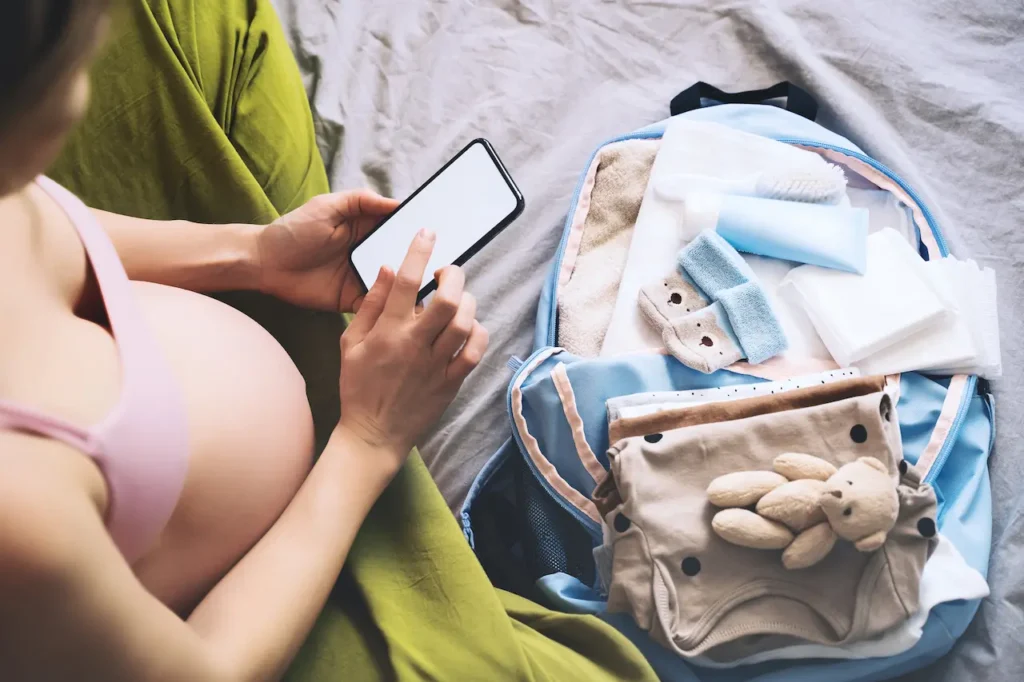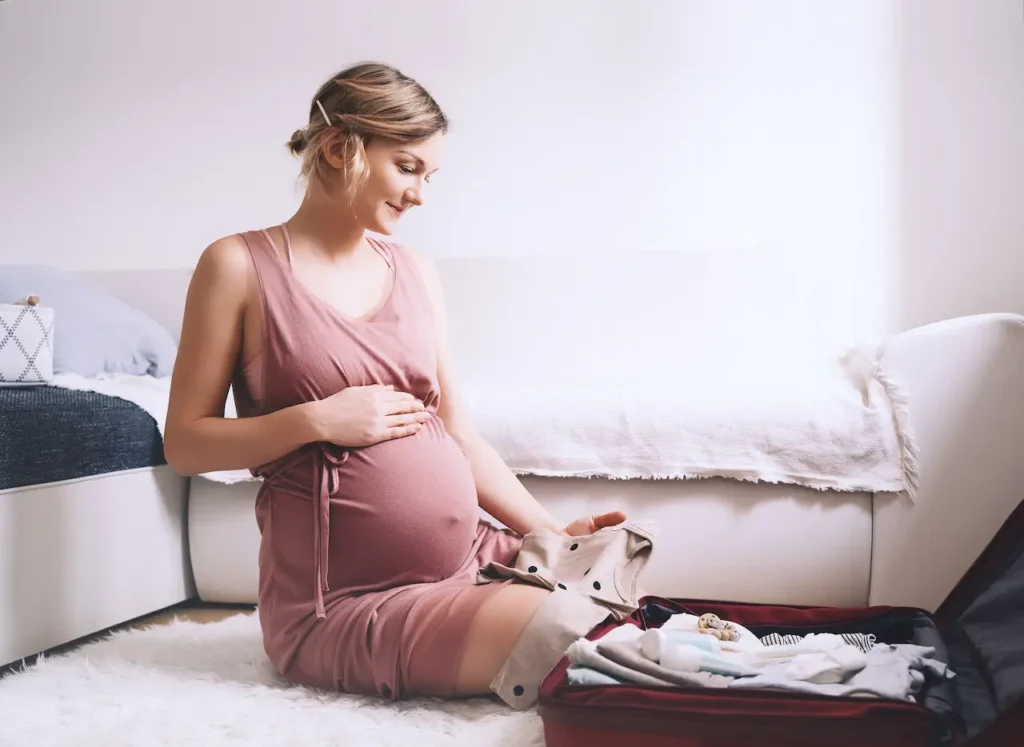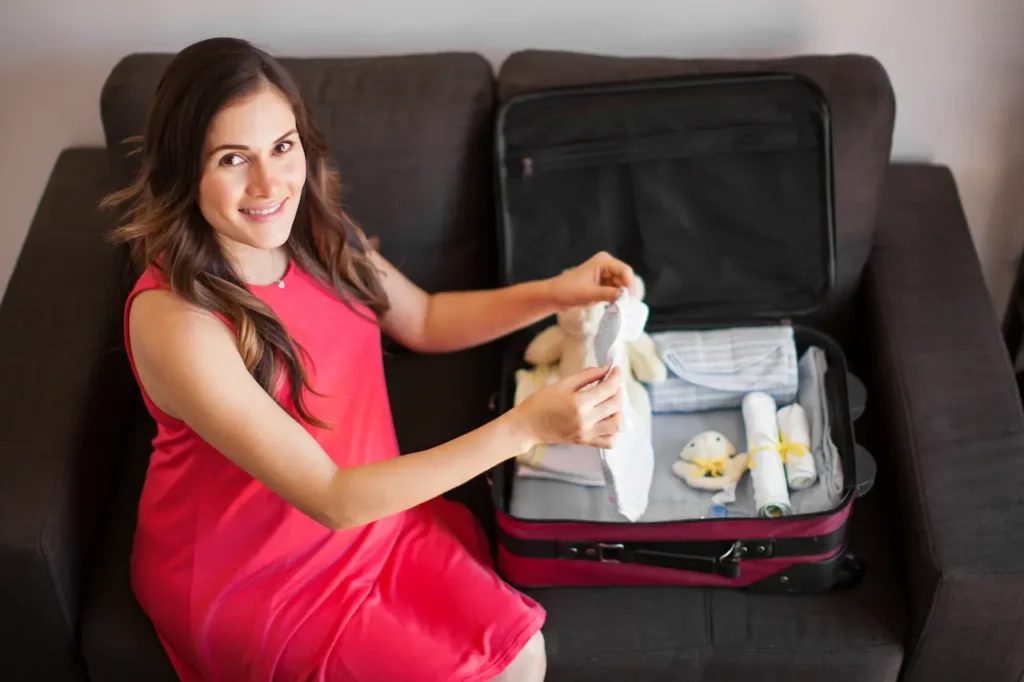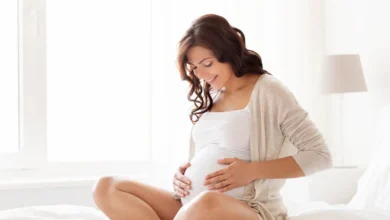Many mothers start buying supplies before their baby’s birth. You should consider what you’ll need to care for your newborn after you give birth, regardless of whether you intend to do so at home or in the hospital. The postnatal essentials will ensure that you are comfortable and supported during your recovery.
Post-Baby Essentials Every New Mom Should Have
It is an exciting and rewarding experience to welcome a newborn into your family, but there are also challenges. New moms are often left to care for their babies while they recover after giving birth. The right essentials will make a big difference during those early days. Being prepared can ease the transition to motherhood. Here are seven items that every new mother should have after having a baby.
1. Black Granny Undies
Postpartum bleeding, or lochia (as midwives refer to it), usually lasts 4-6 weeks following your birth. This is a very long time, and a lot of underwear can be stained. It’s, therefore, a good idea to purchase a bunch of dark-colored underwear to wear with your pads after your baby is born. It’s best to wear high-waisted pants, which can hold the pads firmly in place. Once your postpartum bleeds are over, they can be thrown out.
2. Heat Packs
After-pains are a joy for many women, especially if it is their first child. It’s like a little bonus uterine pain that mothers experience after having their babies. Only there are no hormones to ease the pain. Heat packs can be used to relieve cramping. You can buy them at most pharmacies, or make your own with a scrap piece of fabric and rice.

3. Chamomile Tea
Chamomile is a natural relaxant that can be used by both mother and child. You can drink it to relax during those long nights with a newborn. The benefits will also be passed on through your breast milk, helping your baby.
4. Face Wipes
It can be difficult to remember to shower when you are in the fourth trimester. It can be reassuring to a new mum that she has her sh*t together, even if it’s not true.
5. Bath Salts
Bathing with Epsom salts and magnesium chloride flakes is a great way for new mothers to relax. Even better, you can bring your baby along! You can enjoy a relaxing, bonding time together and nourish your body at the same time. Try adding dried calendula or lavender flowers.
6. Muesli Bars and Muffins
All new mothers can identify with postpartum hangry anger. If we aren’t given food, we will even consider eating the armrest of the couch. It is a good idea to keep a few healthy muffins or muesli bars in your freezer to munch on before postnatal hangries set in.
7. Box Sets are Still Popular.
You’ll spend a lot of time feeding your baby, whether you plan to breastfeed them or not. So best get comfy. It’s time to set aside a wonderful box set to watch as you feed your child. If you are a multi-mother like me, then download podcasts and listen on the go! Enjoy the time passing this way.
Find a nice, large box and put all the essentials in it. Then relax. You got it.
Packing Your Hospital Bag
It’s not a walk in the park. This is not a vacation either. But, you will be away from your home for at minimum 24 hours (uncomplicated vaginal birth), and up to 2 to 4 days (a cesarean birth).
You’ll receive the basic items you need to take care of yourself both during and after your birth. Where’s the excitement in just the basics?
Pack your bags well in advance if you want the experience to be extra. What you can expect from your hospital or birthing center and what you might want to bring yourself, your partner, and your baby.
When To Pack Your Bags
About 5 percent of babies born at their due dates are born.
Your baby could arrive a few weeks earlier or later than you expect. Pack your bags three weeks in advance of your due date. You’ll have some time to prepare for any unexpected events.
You may want to start packing up sooner if you suspect you will go into premature labor or have a baby early.
What is Provided by The Birth Center
You’ve likely read a lot of packing lists that seem to be exhaustive. It’s not necessary to pack everything. Even if you forget to pack anything, the hospital will likely have all your basic needs covered. This should lift a lot of weight off your shoulders, literally.
Call ahead to inquire about the facility you are interested in before arriving. It may be worth scheduling a tour of the hospital during your pregnancy to get a better idea of what to expect.
Birth Centers Provide
- Hospital gowns
- Grab socks
- Birthing balls and other tools for labor, such as personal massagers
- Large cups for water and Ice
- basic toiletries — soap, shampoo, toothbrush/toothpaste
- It’s not very attractive, but it works.
- Thick sanitary pads
- After-care products like witch hazel pads, peri bottles, and peri pads
- Standard pillows and blankets
Baby
- Preemie, newborn, or size 1 diapers
- Basic wipes
- flannel swaddle blanket(s)
- Onesies with hospital branding
- Standard knit hat
- shampoo/soap
- pacifiers
- Formula (Some “baby-friendly” hospitals will only provide formula when it is medically required. Find out what your hospital’s policy is on formula by calling them.
- If needed, prescription and nonprescription medications can be prescribed
- Wedding rings and other jewelry
- Laptops and tablets
- We all have a lot of cash lying around.
Avoid bringing items that you would miss if they were lost. Your items will not be on your mind the first time you hold your baby!

You May Also Like: Nail Polish That Is Safe to Use During Pregnancy
What You Should Include in Your Bag
You’ll be provided with the basic items by the hospital, but having your familiar items can help you feel more comfortable. You’ll feel more comfortable wearing your mesh underwear, we promise.
Call your hospital before packing to confirm that there are no rules about what you can wear. Some hospitals, for instance, may require or prefer that you wear the hospital gown during your actual birth.
This list may seem long, but it can all fit in a single overnight bag.
- Your ID. You’ll need to show some form of identification when you check-in. Your insurance card, as well as any other documents that your doctor may have given you to gain admission, will be needed.
- Medications list. This information will be requested at the time of check-in. You may be asked for this information again after you have settled in. It can be hard to remember what you’re taking when you’re at work. It’s much easier to hand over a sheet of paper.
- Medicines. If you are on any of the more common prescription drugs, then yes, you can get them from the hospital pharmacy — but at a price that may be higher than you pay normally. If you take less common medications, the hospital may not have them on hand. Pack your medication to avoid any headaches.
- Use a credit card or a small amount of money. You might want to buy something at the cafeteria or gift shop during your stay.
- Birth Plan. Bring a few copies of your birth plan with you.
- Personal hospital gowns or pajamas. You can purchase your hospital gown, or you can change it after delivery. Pretty gowns are available for around $30 on Gownies. You may pay more if you have a gown made according to your preferences. Consider wearing a dark nightgown that allows easy monitoring during delivery and breastfeeding.
- Bring your non-skid socks and slippers. You can also bring your hospital socks if you prefer. You should choose something that has a grip for safety. You may not be able to dance on the floor of the delivery room, but you will still walk around.
- Birth playlist. Birth playlist. This can include music, meditations, or other audio that you wish to listen to during your labor and delivery.
- Book. You can also use a magazine or any other reading material. You can use this if you have to wait for the main event.
- A cell phone and charger. You may need some entertainment, or you might want to be able to talk with a friend. You know that your friends on social media would love to see updates! You can also save your audio or music on your phone.
- Toiletries. You can go as simple as some travel shampoos, toothbrush/toothpaste, a brush, deodorant, and a bar of soap. You can also bring all your makeup and hair products, especially if you are having professional photos taken. If you have dry skin, don’t forget to bring along hair bands, lotion, and lip balm.
- Hair dryer. It may or may not be forbidden to bring in a plug-in device or a hair dryer. You can call ahead to confirm the rules.
- Contacts or glasses. You may not think about it, but don’t forget to pack contact lenses and glasses supplies like a case, saline solutions, and contact lens solutions.
- Underwear. In the first few days of heavy bleeding after delivery, mesh underwear from the hospital can be life-saving. After that, your underwear may be more comfortable. Consider sizing up if you’re going to be wearing pads. Also, choose styles with full coverage. Choose dark colors to hide stains. null
- Hospital pads are thick. Bring your own thinner pads if you prefer. After delivery, you shouldn’t use tampons.
- Nursing Bra or Supportive Bra. Your milk will likely come in the first few days and hours after giving birth, whether or not you plan to breastfeed. Supportive bras can ease discomfort. You can easily feed your baby with a nursing bra.

Mom Getting Ready for Labor - Cover and pillow for breastfeeding. Expecting visitors? Null It’s up to you whether or not you use a nursing cover. null null
- Breast Pump and other Nursing Supplies. It’s not necessary to bring your breast pump if it’s not something you plan to do exclusively. If you need one unexpectedly, the hospital will provide it. If you need help using your pump, ask a lactation specialist to teach you how to do it.
- Wear comfortable clothes. Some women wear a hospital gown for the entire hospital stay. It’s perfectly fine. You can also wear loose clothing. Think of dark-colored yoga pants, button-downs, or nursing shirts, as well as other lounge clothes, such as a robe with easy breastfeeding access.
- Outfit for going home. Remember to consider what you will wear at home. Consider the weather when packing. null
- Pillow. Do you have a preference for the type of pillow you use? Bring your favorite. Put it in a pillowcase that is brightly colored so it doesn’t blend with the hospital pillows.
- Flip-flops. Yes, the hospital showers and floors are regularly cleaned. You may feel more comfortable with the extra protection.
Conclusion
Preparing for the arrival of your baby means addressing your postnatal requirements. It can be difficult to transition into motherhood. Having essentials such as black granny underwear, heat packs and healthy snacks on hand will help you recover. Your comfort and well-being are important to help you enjoy this new chapter.



